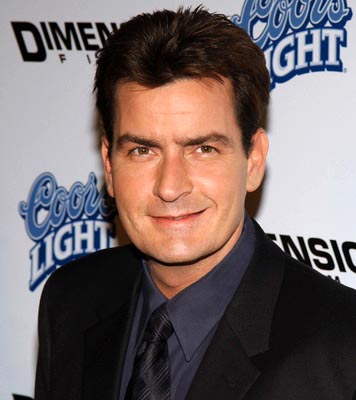I can’t help thinking that somewhere in the universe there has to be something better than man. Has to be.
Why it’s a left-wing film
Director Franklin J. Schaffner’s “Planet of the Apes” might be the most cynical, anti-human and anti-religious film ever made. What’s most telling about the film’s political point of view is the arc of the main character, played by The Mighty Charlton Heston. When we first meet Colonel Taylor aboard an in-flight American spacecraft, he makes no secret of his revulsion towards mankind as he records in his duty log… Does man, that marvel of the universe, that glorious paradox who sent me to the stars, still make war against his brother? Keep his neighbor’s children starving?
After the ship crashes on a seemingly barren planet light years from Earth, in conversation with a fellow survivor, Taylor doubles down and says outright that he despises man and became an astronaut to get away from his own species.
What you expect from a story like this is that through the experiences Taylor lives through on a planet where apes rule like humans and humans are treated like apes, is that Taylor will finally come to appreciate his own species. In a way this does happen when Taylor is forced to become man’s final champion and advocate, but then at the last second, this evolution of character uncharacteristically has the rug pulled completely out from underneath it. It’s for this reason that the justifiably famous and iconic final twist is more than just a jaw-dropping surprise. Essentially, this final moment tells us that the Taylor we first met, the one who had no faith in mankind, was correct. To put this in perspective, imagine “Casablanca” ending with Bogart’s detached cynicism justified in some way after Ingrid Bergman’s plane takes off. Movies just aren’t supposed to work this way.
This, I think, is why this particular final twist hits as uniquely hard as it does and remains so haunting four decades and a few hundred cinematic surprise endings later. Rod Serling, who wrote an early draft of the script, most of which for budgetary reasons didn’t make it to the screen, was responsible for coming up with the ending. But at the time, it’s not as though such a thing was a new concept. Serling’s own “Twilight Zone” had been beaming closing shockers into living rooms for six seasons already. Which isn’t to say that “Apes” final twist isn’t extremely well handled story-wise. A lot of pipe is laid throughout to make that moment work, to ensure you rewind the film in your head as the big “aha” takes hold. But on another level, on a subconscious and emotional level, you’re also sensing that what’s left of the Statue of Liberty is more than just a plot-twist, it’s also a stunner of an emotional hit when it comes to our movie-trained expectations regarding our protagonist’s emotional growth. To be told that the long personal journey we just witnessed was completely pointless, is the two-punch in that closing moment, even if we’re not exactly sure where it comes from.

“Apes” is also a harsh and, at times, condescending critique of our own society. By placing us in the position of animals, numerous statements are made about animal rights. Furthermore, us humans become the central figures in an evolution debate that mirrors our own. I personally don’t know any Christians who deny evolution exists but the stereotype is alive and well in a story about a patriarchal ape society run by science deniers who cling to superstition. Worse still, eventually they’re all revealed as liars who have known all along that the scientists were right. But even on a planet run by apes, the movie tells us religion is nothing more than an opiate for the masses.
Why it’s a great film
The timelessness of a film that spawned four sequels over five short years, a short-lived television series, a ton of merchandising, and one ill-conceived remake in 2001, is hardly difficult to understand. What you have here is a fascinating concept perfectly executed. Starting with the cast.
With the possible exception of William Holden, no one could’ve played the darkly cynical but competent Taylor as well as Heston. What makes him fascinating is that anger is what drives him to action more than bravery or even his own survival instincts. And yet, Heston still manages to earn our sympathy for his misanthrope because underneath all that glib bitterness we can feel how empty Taylor is inside. Whatever it was that happened to him to make him the way he is, is thankfully never explained. But we do sense that whatever it was, Taylor was the victim, the one who was hurt.

As Taylor’s simian allies, Cornelius and Zira, Roddy McDowall and Kim Hunter are splendid in crafting vibrant characters from underneath all that make up and have an undeniable chemistry together. So crucial to the franchise were they that both would return in the sequel, outright star in second sequel and McDowall would stay on straight through to the end, though in the last two films as Caesar, Cornelius’s son. It’s hard to explain, but while the timeline of the five films fit ingeniously together, there’s a circular narrative to it all.
Furthermore, what “Apes” delivers is a fantastic and exciting adventure story filled early on with slow reveals that keep you watching, a brilliantly choreographed, shot and edited sequence where we finally see the apes for the first time as they hunt down and capture our heroes as though on safari, and the perfect blend of human drama and tense action that fills up the remaining hundred minutes.
“Planet of the Apes” never gets old. Not a single frame has aged a day. And in this era of lazy CGI, the organic quality of the production is a feast for the eyes; from the crash of the spacecraft to the stunning aerial shots of the barren landscape that immediately follow to show how small the survivors are in their new world to a compelling and completely convincing society ruled by apes. And thanks to a superbly crafted screenplay, this society isn’t just visually realistic. This all comes to life because the necessary details have been thought out when it comes to how a society is structured, ruled, and governed.
Finally, you have the behind-the-scenes geniuses. Forty years on, the make-up (which won an honorary Oscar), is still a marvel. Not for a second do you question that these walking, talking self-aware creatures are apes. That spell never breaks. Wrapping it all together in an eerie, disjointing but tribal feel is an iconic and unforgettable score by Jerry Goldsmith that’s only grown in stature over the decades.
This is one of the films I’ve probably watched and re-watched the most on this countdown (which is saying a lot), and yet it was still the one I was most looking forward to re-watching again. And to be honest, I don’t even think of it as a political film. This is just a whale of story told as well as anyone possibly could and anchored by a legendary actor who never let his own personal political and religious beliefs get in the way of creating a cinematic legacy and giving his fans plenty of bang for the buck.
Here’s the Top 25 countdown thus far.


COMMENTS
Please let us know if you're having issues with commenting.